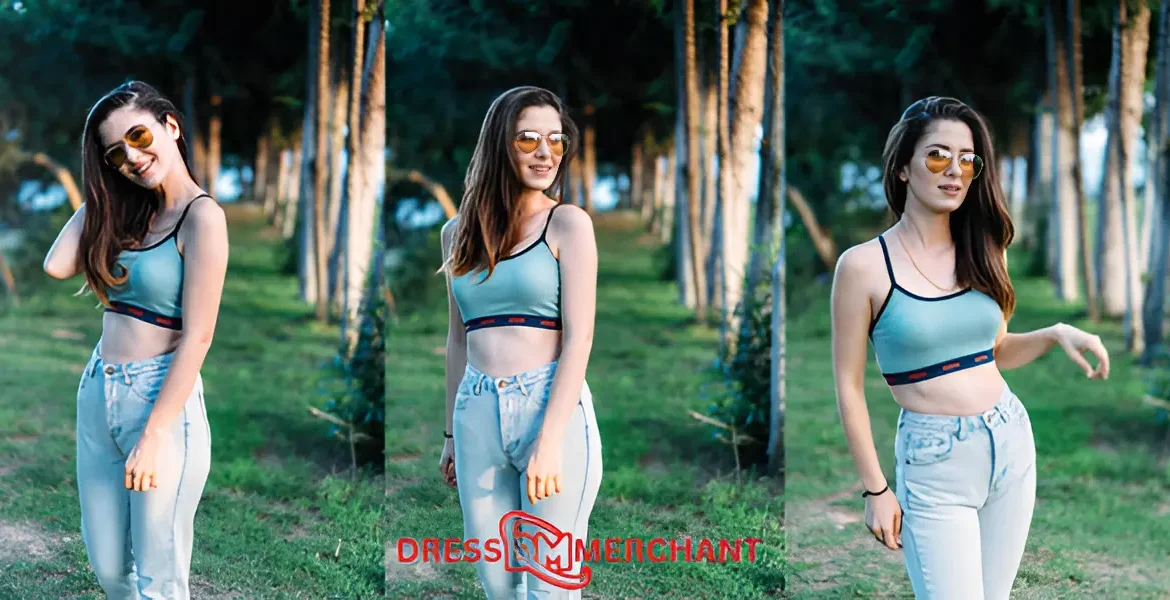Bangladesh clothing manufacturing fabric sourcing and fabric mills are expertly handled by Dress Merchant, your trusted apparel buying agent. We specialize in sourcing high-quality fabrics from top fabric mills, ensuring seamless production for garment manufacturers and exporters. Partner with us for reliable, efficient, and cost-effective fabric solutions tailored to your apparel business needs.
Thank you for reading this post, don't forget to subscribe!1. Overview of Bangladesh Clothing Manufacturing Industry
Bangladesh has emerged as one of the world’s leading hubs for clothing manufacturing, particularly in the ready-made garments (RMG) sector. Over the past few decades, the country has leveraged its competitive labor market, modernized infrastructure, and strategic government policies to become a global apparel powerhouse.
Bangladesh’s clothing manufacturing industry contributes significantly to the national economy, accounting for a substantial portion of export earnings. International brands increasingly rely on Bangladesh due to its ability to deliver high-quality garments at competitive prices without compromising standards. The presence of specialized fabric mills and efficient supply chains ensures seamless production, from sourcing raw materials to finished products.
Furthermore, Bangladesh’s compliance with global certifications such as ISO, OEKO-TEX, and WRAP underscores the commitment to ethical and sustainable garment manufacturing, making it a preferred destination for socially conscious brands. The country’s focus on modernizing textile technology, adopting innovative fabric processing techniques, and enhancing labor skills ensures its continued growth in the global apparel market.
With an extensive network of clothing manufacturers and fabric suppliers, Bangladesh offers unparalleled advantages for brands seeking efficient and reliable sourcing solutions.
2. Key Advantages of Sourcing Fabric from Bangladesh
Sourcing fabric from Bangladesh presents numerous advantages for international buyers. One of the most significant benefits is the combination of cost-effectiveness and high-quality production, making Bangladesh a strategic sourcing hub. The country’s fabric mills offer a wide range of materials, including cotton, denim, knitwear, and blended textiles, all produced with precision and consistency.
Buyers also benefit from quick turnaround times due to well-established logistics and export processing zones (EPZs). Moreover, Bangladesh has gained a reputation for ethical and sustainable fabric sourcing, with many mills adhering to eco-friendly production methods and maintaining stringent quality standards. The presence of experienced textile professionals ensures that garments manufactured using locally sourced fabrics meet global market expectations.
Additionally, Bangladesh provides a seamless supply chain that reduces lead times, ensuring brands can meet seasonal demands efficiently. By sourcing fabrics from Bangladesh, buyers gain access to innovative textile solutions, cost savings, and a reliable partnership that supports long-term growth in the apparel industry. This combination of affordability, quality, and sustainability makes Bangladesh one of the top choices for international clothing manufacturers and fashion brands.
3. Types of Fabrics Produced by Bangladesh Fabric Mills
Bangladesh fabric mills are renowned for their diverse range of textiles, catering to different segments of the apparel industry. Cotton remains the most popular, valued for its comfort, durability, and versatility. Additionally, mills produce high-quality denim fabrics for jeans, jackets, and casual wear, as well as knit fabrics for T-shirts, activewear, and sportswear.
Polyester and blended fabrics are also widely manufactured, offering durability, cost-effectiveness, and easy maintenance. Many fabric mills specialize in woven, printed, embroidered, and jacquard fabrics, enabling brands to source customized textiles according to their design requirements. Bangladesh’s textile mills also emphasize quality control, ensuring that every batch of fabric meets international standards. With modern machinery and skilled labor, mills can produce large volumes without compromising consistency, making them ideal partners for large-scale garment production.
Furthermore, the country has seen a growing emphasis on eco-friendly fabrics, including organic cotton and recycled polyester, reflecting the global demand for sustainable fashion. By choosing fabrics from Bangladesh, brands gain access to premium textiles, diverse options, and expert craftsmanship, ensuring their garments are both stylish and market-ready.
4. Leading Fabric Mills in Bangladesh and Their Specialties
Bangladesh is home to some of the most prominent fabric mills in South Asia, each offering specialized production capabilities. These mills cater to both domestic manufacturers and international buyers, producing high-quality textiles such as cotton, denim, polyester, and knits. Many leading mills are vertically integrated, providing end-to-end solutions from yarn spinning and weaving to dyeing and finishing.
This integration ensures consistency, faster lead times, and reduced production costs. Some mills specialize in premium fabrics, focusing on high-thread-count cotton, textured knits, and custom prints, while others excel in large-scale production suitable for bulk orders. Compliance with global certifications like ISO 9001, OEKO-TEX, and GOTS demonstrates their commitment to quality and sustainability.
Many of these mills also invest in advanced machinery and skilled workforce training, allowing them to adopt the latest innovations in fabric manufacturing. Brands sourcing from these mills benefit from a combination of quality, reliability, and innovative fabric solutions. Ultimately, partnering with top Bangladesh fabric mills ensures access to versatile textiles, timely delivery, and a consistent supply chain for garment manufacturing.
5. Sustainable Fabric Sourcing Practices in Bangladesh
Sustainability is becoming a crucial aspect of global clothing production, and Bangladesh is actively adapting to meet this demand. Leading fabric mills implement eco-friendly production methods, including water-efficient dyeing, reduced chemical usage, and energy-saving machinery. Organic cotton, recycled polyester, and other sustainable textiles are increasingly available, allowing international buyers to produce green fashion lines without compromising style or quality.
Many mills have obtained certifications like GOTS and OEKO-TEX, ensuring their fabrics meet environmental and social standards. Ethical labor practices are also emphasized, contributing to socially responsible sourcing. Bangladesh’s commitment to sustainability extends to waste management and recycling initiatives within fabric mills, reducing environmental impact.
By sourcing fabrics through these mills, brands can demonstrate their dedication to ethical and sustainable clothing manufacturing, appealing to environmentally conscious consumers. Sustainable sourcing in Bangladesh not only supports the planet but also strengthens the country’s reputation as a reliable partner for international fashion and apparel brands seeking eco-conscious solutions.
6. Challenges in Fabric Sourcing for Bangladesh Clothing Manufacturing
While Bangladesh offers numerous advantages for fabric sourcing, buyers must be aware of certain challenges. Supply chain delays can occur due to high demand, transportation issues, or customs regulations. Quality inconsistency is another concern, particularly with smaller fabric mills that may lack advanced quality control systems.
Brands sourcing specialized textiles may face difficulties finding mills with the required expertise or technology. Additionally, currency fluctuations, labor strikes, or raw material shortages can impact production timelines and costs. Compliance with international labor, safety, and environmental standards may also require careful vetting of fabric suppliers. Despite these challenges, most leading Bangladesh fabric mills maintain transparent processes, certifications, and communication channels to minimize risks.
International buyers can mitigate issues by partnering with reputable mills, conducting factory audits, and establishing long-term contracts. Understanding these potential hurdles ensures that sourcing from Bangladesh remains efficient, reliable, and aligned with global garment manufacturing standards.
7. Innovations in Textile Manufacturing in Bangladesh
Bangladesh’s textile industry is evolving rapidly, embracing innovation to enhance quality, efficiency, and sustainability. Modern fabric mills use advanced weaving, knitting, and dyeing technologies to improve consistency and speed production. Automation in fabric inspection, cutting, and finishing reduces human error and ensures higher-quality outputs. Innovative mills also adopt digital printing, laser-cutting, and 3D textile technologies, allowing designers to create unique patterns and textures efficiently.
Sustainable innovations, such as low-water dyeing techniques, recycled fibers, and biodegradable finishes, are increasingly common, reflecting global demand for eco-friendly fabrics. Continuous investment in research and development helps mills adapt to trends in fashion, technical textiles, and functional garments.
Brands that collaborate with technologically advanced mills in Bangladesh gain a competitive advantage by accessing high-quality fabrics, faster turnaround times, and cutting-edge textile solutions.
8. How to Choose the Right Fabric Mill for Your Garment Production
Selecting the right fabric mill is crucial for successful clothing manufacturing. Buyers should consider factors like production capacity, quality control systems, certifications, and experience in producing specific fabrics.
Assessing the mill’s ability to meet deadlines and handle bulk orders is essential for large-scale operations. Ethical labor practices and sustainable sourcing methods should also be prioritized, particularly for brands targeting international markets with strict compliance standards. Transparent communication, factory audits, and references from previous clients help verify the reliability of potential partners.
Leading Bangladesh fabric mills offer customization, consistent quality, and innovative textile solutions, making them ideal collaborators for apparel brands. By evaluating these criteria, buyers ensure efficient, cost-effective, and high-quality garment production while minimizing supply chain risks.
9. The Role of Fabric Quality in Bangladesh Clothing Manufacturing
Fabric quality is a cornerstone of successful clothing production, directly impacting garment durability, comfort, and consumer satisfaction. Bangladesh fabric mills prioritize high-quality textiles, incorporating strict quality control procedures from yarn selection to finishing. Premium cotton, durable denim, and advanced knit fabrics are commonly produced to meet global standards.
The choice of fabric affects stitching precision, color retention, and overall garment performance. Brands sourcing from Bangladesh benefit from reliable fabric mills that maintain consistent quality across batches, reducing production defects and returns.
Furthermore, superior fabrics enhance brand reputation by ensuring the end product meets customer expectations. In a competitive global market, high-quality fabrics sourced from Bangladesh contribute to sustainable and profitable garment manufacturing.
10. Future Trends in Bangladesh Fabric Sourcing and Textile Mills
The future of Bangladesh fabric sourcing looks promising, with continuous advancements in technology, sustainability, and market reach. Automation, AI-driven production monitoring, and digital textile printing will redefine efficiency and creativity in garment manufacturing.
Demand for organic, recycled, and functional fabrics is expected to grow, pushing mills to adopt more eco-friendly and innovative sourcing methods. Strategic partnerships between brands and leading fabric mills will enhance supply chain reliability and reduce lead times.
The government’s focus on infrastructure development, export incentives, and skill enhancement programs ensures Bangladesh remains a global leader in textile production. By embracing these trends, international buyers can access high-quality fabrics, maintain competitive pricing, and support sustainable clothing manufacturing practices, positioning Bangladesh as a top destination for global apparel sourcing.
Conclusion: Bangladesh clothing manufacturing fabric sourcing and fabric mills
In conclusion, Bangladesh has firmly established itself as a global hub for clothing manufacturing, fabric sourcing, and textile production. The country’s vast network of fabric mills, coupled with its competitive production costs, skilled workforce, and robust supply chain infrastructure, makes it an ideal destination for apparel sourcing. For international brands and retailers, partnering with an experienced apparel buying agent like Dress Merchant ensures seamless access to high-quality fabrics, reliable manufacturers, and efficient production processes.
At Dress Merchant, we specialize in bridging the gap between global buyers and Bangladesh’s thriving textile industry. From selecting the right fabric mills to coordinating manufacturing and export logistics, our expertise guarantees products that meet international standards while optimizing cost and efficiency. By leveraging our deep knowledge of Bangladesh’s clothing manufacturing landscape, we help brands achieve quality, consistency, and timely delivery, making sourcing a strategic advantage rather than a challenge.
With Bangladesh’s continuing growth in textile innovation and Dress Merchant’s tailored sourcing solutions, businesses can confidently expand their apparel offerings while ensuring superior quality and supply chain reliability.






























